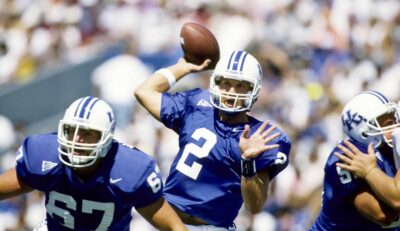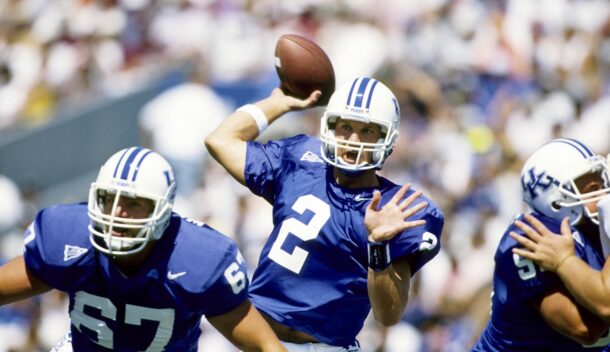Despite non-call Jones has been Alabama’s most consistent player in secondary
TUSCALOOSA, Ala. — It may have been the most veteran move yet by Cyrus Jones.
Tuesday afternoon, the University of Alabama junior cornerback met with reporters and sure enough was asked about the controversial play against Ole Miss, when he appeared to have contact with the facemask of running back I’Tavius Mathers, then punched the ball out, recovered the fumble and scored a 13-yard touchdown just before halftime.
When asked if it was a penalty, he took the diplomatic way out.
“You could argue it both ways,” he said. “I didn’t even realize that I hit him in the facemask when I was going, it happened so fast, and I looked at it, you could have called it. Because I didn’t really grab it, I just hit it and knocked my hand down. But I didn’t get it, thankfully, but I was able to make a play.”
Translation: “We got away with one,” especially since the NCAA rulebook says if the head turns it’s a penalty and “When in question, it is a foul.”
Although it resulted in seven points, Ole Miss came back and eventually won the game 23-17 after Alabama had numerous miscues in the second half. In regards to the secondary, though, there were only two plays that Coach Nick Saban was particularly upset about:
- The 50-yard completion to tight end Evan Engram to set up the first touchdown.
- The 34-yard yard touchdown to tie the game at 17-17.
They were two of just four explosive plays for the Rebels (Saban defines a explosive play as those being at last 13 rushing yards or 17 passing yards), and take them away and opportunistic Ole Miss only would have had 243 total yards.
Of course football doesn’t work that way.
“We didn’t play the post properly and the other one was a mental error on defense where they put trips into the boundary, three receivers into the boundary and run them all down the field on a fastball play,” Saban said. “We didn’t adjust like we were supposed to and the tight end catches the ball 50 yards.
“Other than those two plays, there was a couple of third downs where we could have played a little better and could have gotten off the field if we executed better. Other than those two plays … and the last play on third-and-11, it really wasn’t a hard play for us to make. We just didn’t play it correctly.”
The bunch formations, when the Rebels would line up four players together on the same side, appeared to give Alabama some problems in particular because it could be confusing about who each player was supposed to cover. As Ole Miss showed if the quarterback can make the quick throw the receiver only needs a little hesitation by a defender to get an opening.
But Saturday’s game was also a confidence builder for Alabama’s most consistent player in the secondary this season, Jones. Despite having a significant size disadvantage against receivers Laquon Treadwell and Cody Core, Ole Miss only had two receptions with him in coverage for just 21 yards and drew a pass-interference penalty on a short sideline attempt.
When the game came down to crunch time, Ole Miss opted to attack the other side of the field.
“I think I definitely proved something, not really to myself, but a lot of people, just because he’s one of the better receivers we have in our conference,” Jones said when asked about Treadwell. “I know that the DBs on our team, we get kind of ridiculed a lot, so it was good to come out and play well against one of the best receivers in our conference and make plays.”
He added regarding the “ridicule” part: “When a play is given up, on the outside looking in, you really don’t know who gave it up or what. Sometimes we’re in zone, sometimes we’re in man. But it can look a certain way that it’s not.”
Overall, though, Alabama’s defense was a lot like the fumble return: A lot of things went right but there was just something off with the execution. Shoring that up is what Crimson Tide defense will be working on in particular this week in preparation for Saturday’s game at Arkansas (6 p.m. ET, ESPN).
“Definitely need to get better in a lot of ways,” Jones said. “Made a couple plays. But it’s not really about individual performance. If you don’t come out with a win, it doesn’t really mean anything.”
Christopher Walsh has covered Alabama football since 2004 and is the author of 19 books. In his free time, he writes about college football.







